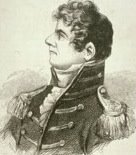Australia: "This bizarre concoction of an African bishop must have other conservatives rolling their eyes"
In comments to The Age of Australia, several Anglican leaders weigh in on recent developments in The Episcopal Church.
"Sydney Archbishop Peter Jensen, a leader of evangelicals in the Western church, said Archbishop of Canterbury Rowan Williams, leader of the world's 77 million Anglicans, could no longer avoid decisions that would disappoint one side or both.
"His method has been to put off those choices and give people a chance to reconcile, which has been sensible, but in the next 18 months he will have to make decisions that will lead to a great deal of antagonism," he said.
Archbishop Jensen said the loss of the parishes in Virginia sent a powerful message to the American church that the threats it faced were internal, rather than external, while the evangelical covenant in England was a signal that conservatives would stay in the church but would be more politically active. "The church will be less easy to govern than ever before."
Leading Australian liberal Andrew McGowan, warden of Trinity College at Melbourne University, said there was more fall-out to come.
He said it was difficult to predict whether the departure of the American churches was "another round of dominoes or just a couple of conservative churches having had enough and deciding to jump ship".
"This bizarre concoction of an African bishop must have other conservatives rolling their eyes."
The English covenant had received scathing criticism from leading evangelicals, showing that the Church of England had a strong core from all the main traditions. In Australia, Anglicans wanted to hold things together. Liberals were more circumspect, even though it meant they could not carry forward their agenda."
The full article may be read here.
It includes the occasional statement that is not supported by facts and that cannot be supported by facts, such as, "the churches that have voted to schism, are 'some of the most famous.' " Unless they have been following the odd developments, few outside Virginia likely know the names of the churches or what they stand for or do, since they have steadily isolated themselves from the greater Episcopal Church for years. What has made their names more common, are their acts of schism. Their roles in any ministries and activities of the greater Church have tended to be obstructionist and divisive, not collaborative. Their financial support for the work of the Church outside their own yards, has been paltry.
"Sydney Archbishop Peter Jensen, a leader of evangelicals in the Western church, said Archbishop of Canterbury Rowan Williams, leader of the world's 77 million Anglicans, could no longer avoid decisions that would disappoint one side or both.
"His method has been to put off those choices and give people a chance to reconcile, which has been sensible, but in the next 18 months he will have to make decisions that will lead to a great deal of antagonism," he said.
Archbishop Jensen said the loss of the parishes in Virginia sent a powerful message to the American church that the threats it faced were internal, rather than external, while the evangelical covenant in England was a signal that conservatives would stay in the church but would be more politically active. "The church will be less easy to govern than ever before."
Leading Australian liberal Andrew McGowan, warden of Trinity College at Melbourne University, said there was more fall-out to come.
He said it was difficult to predict whether the departure of the American churches was "another round of dominoes or just a couple of conservative churches having had enough and deciding to jump ship".
"This bizarre concoction of an African bishop must have other conservatives rolling their eyes."
The English covenant had received scathing criticism from leading evangelicals, showing that the Church of England had a strong core from all the main traditions. In Australia, Anglicans wanted to hold things together. Liberals were more circumspect, even though it meant they could not carry forward their agenda."
The full article may be read here.
It includes the occasional statement that is not supported by facts and that cannot be supported by facts, such as, "the churches that have voted to schism, are 'some of the most famous.' " Unless they have been following the odd developments, few outside Virginia likely know the names of the churches or what they stand for or do, since they have steadily isolated themselves from the greater Episcopal Church for years. What has made their names more common, are their acts of schism. Their roles in any ministries and activities of the greater Church have tended to be obstructionist and divisive, not collaborative. Their financial support for the work of the Church outside their own yards, has been paltry.


0 Comments:
Post a Comment
<< Home